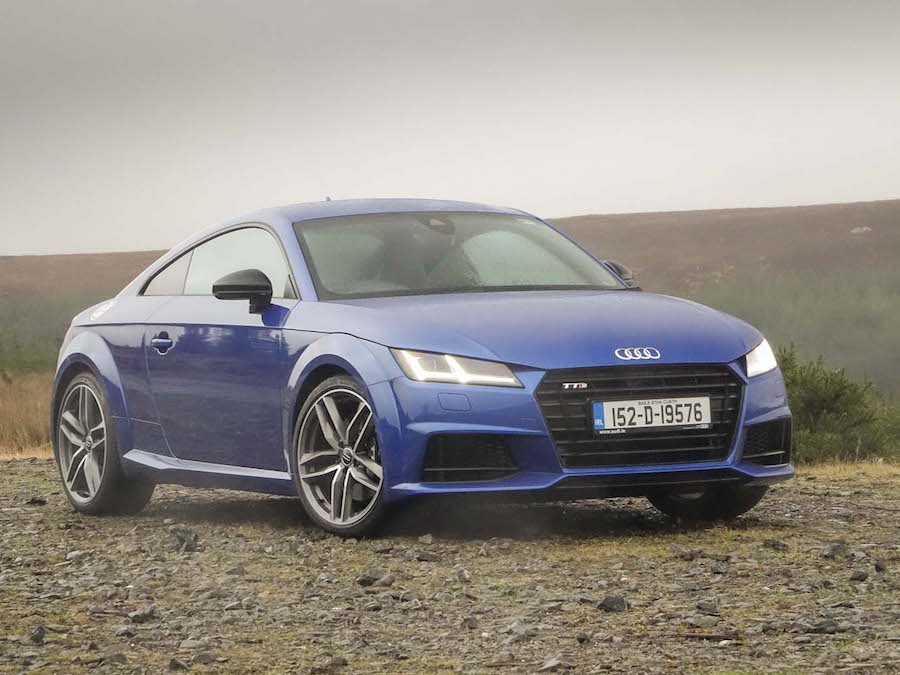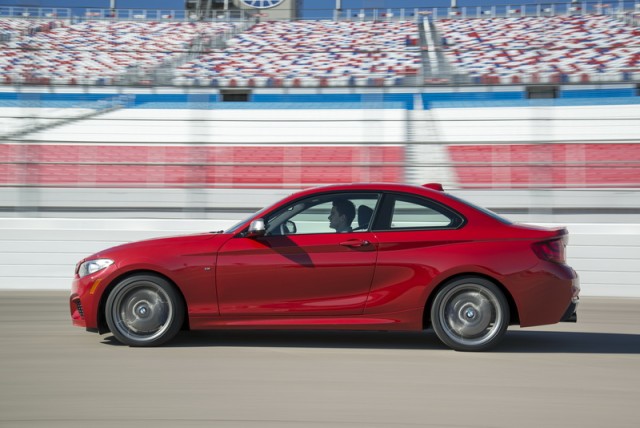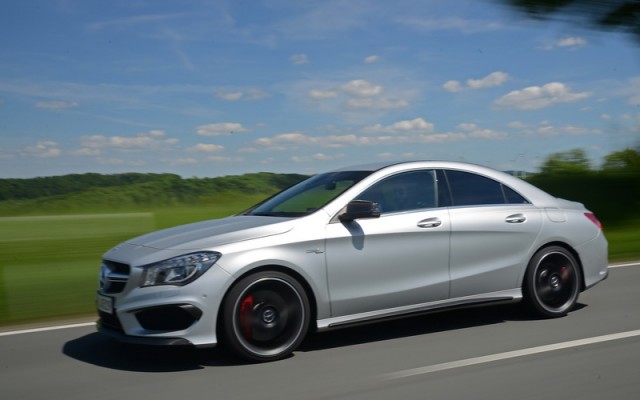Good: unshakeable traction and stability, huge performance, high quality
Not so good: very firm, even in 'comfort' setting, too subtle?
The signs were good for the current generation Audi TT when we reviewed the standard petrol model back in 2014. It continued where its predecessor left off in terms of eye-catching (if evolutionary) style and exceptional interior quality (with the addition of the Virtual Cockpit), yet added a thick layer of extra driver appeal that was somewhat missing from the car it replaced. And that was 'just' the 230hp version. It's fair to say that we were expecting big things of the higher-performing TTS.
Under the bonnet of this standalone version is the same basic turbocharged 2.0-litre TFSI petrol engine, but with peak power turned up to 310hp (delivered 300rpm higher). The torque figure of 380Nm remains the same, available all the way from 1,800- to 5,700rpm.
And thanks to that it never feels flat-footed or in the wrong gear for any given moment; it just goes. And goes. And goes. This is a very fast car by any measure, as hinted at by its 4.6-second 0-100km/h time. Audi has even kindly included a launch control feature on the cars equipped with the dual-clutch S tronic transmission should you wish to replicate that. But even more impressive is the effortless gaining of speed without needing to use all of the rev counter. This helps the TTS feel low on weight, which it is, relatively speaking, weighing in at 1,385kg.
That, a low centre of gravity and its wide stance help the TTS feel rock solid no matter how fast you pitch it into a corner. Body roll is well contained, the steering has a surprising amount of feedback through the thick, flat-bottomed wheel and there's loads and loads of grip. Even on cold and wet roads we discovered that you have to try very hard to unstick the tyres' adhesion to the ground. Eventually there's the merest hint of the front end scrubbing wide if you enter a corner too quickly, which could be taken as a sign to back off. But if you persevere and, indeed, apply more throttle, the quattro system quickly sends more power rearwards, balancing the car beautifully and enabling quite ludicrous corner exit speeds. If you have space (best kept to a race track) and you're brutal with the weight transfer, it's even possible to hold a modest power slide, though the car's electronics are constantly shuffling power around to pull you out of that. It's more satisfying to drive it within its natural grip limits and marvel at its ability.
This is especially true in wet conditions. On a particularly bumpy and soaking section of the Dublin Mountains, the TTS was simply ballistic, finding traction where it shouldn't and feeling utterly composed and stable, regardless of how hard it was pushed. The brakes were brilliant too. In fact, the only criticism we'd have (relevant to those conditions) is that the chassis is tipped a little too far towards the 'uncomfortable' side of the spectrum. Low-profile tyres on 19-inch alloy wheels don't help that of course (though they look great) and although the TTS comes as standard with S sports suspension and damping tied in with the drive select system, it's still a little too firm in the 'comfort' mode, never mind 'sport'. We found the best compromise to be adjustment of the 'individual' mode to use all the sport settings other than the dampers.
But those that love driving are usually content to put up with such things in return for the benefits. And this car comes with a lot of benefits. It certainly lives up to our expectations and has few direct rivals with such a breadth of all-weather capability.













































